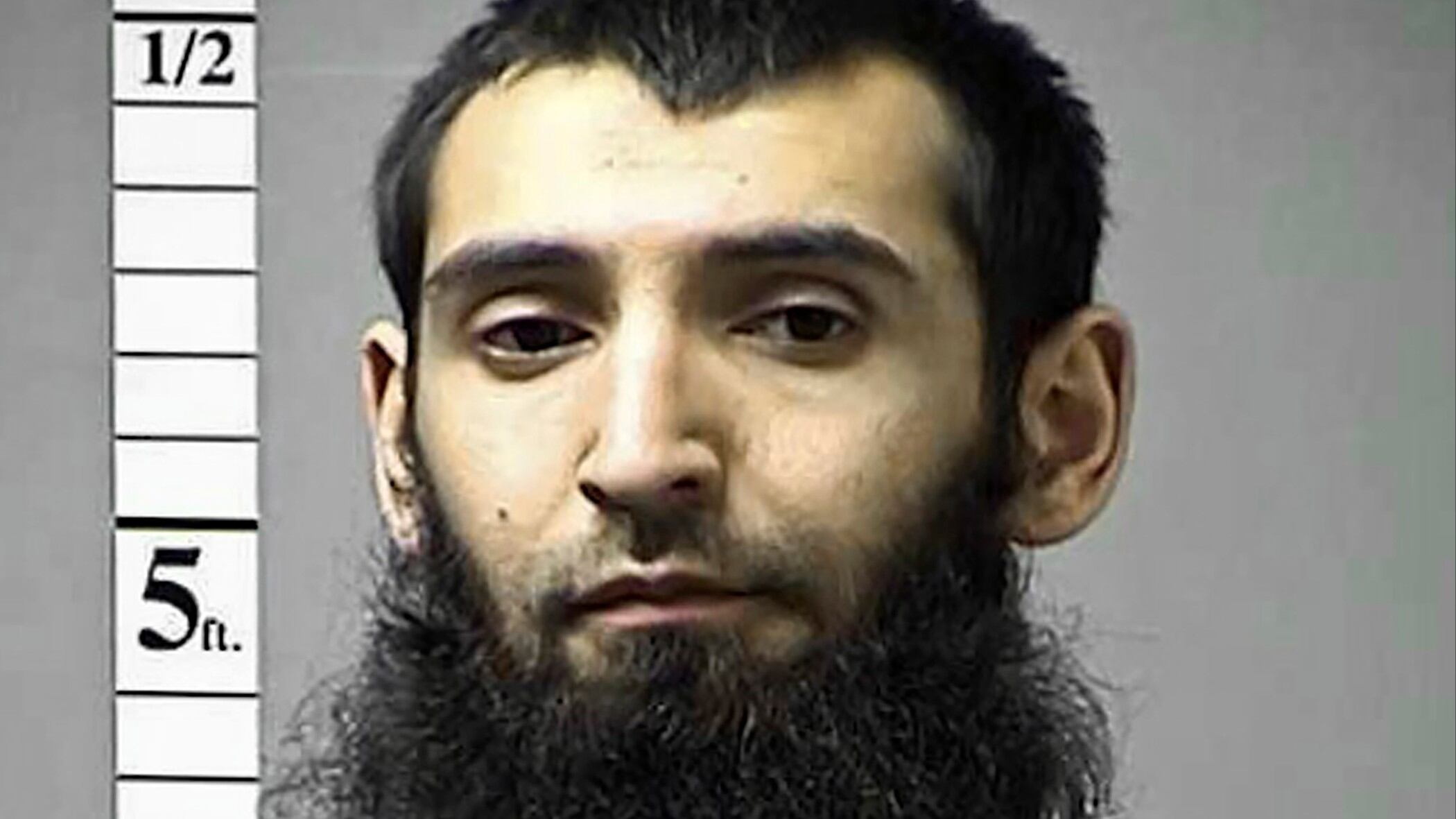By Larry Neumeister
A split among jurors means there will be no death penalty for an Islamic extremist convicted of maniacally racing a truck along a popular New York City bike path, killing eight people and maiming others.
The decision means Sayfullo Saipov, 35, an Uzbekistan citizen who lived in New Jersey, gets an automatic sentence of life in prison without the possibility of parole in the October 2017 attack. Jurors told the judge Monday that they were unable to reach the unanimous verdict required for a death sentence.
Jurors and attorneys left the courthouse afterward without speaking to reporters gathered in the rain outside. Before he was escorted out by U.S. marshals, Saipov seemed relaxed and shook the hands of one defense lawyer.
In a statement, U.S. Attorney Damian Williams thanked the families of the dead and the survivors “for their patience and understanding as the legal process played out.”
The verdict was the culmination of a trial that featured emotional testimony from survivors of the attack and relatives of the five tourists from Argentina, two Americans and a Belgian woman who were killed. A formal sentencing date will be set in the future when Saipov can address the court, although his fate is decided.
The same federal jury convicted Saipov in January of 28 charges including murder in aid of racketeering and supporting a terrorist organization.
It returned last month for a penalty phase to decide if he would be sentenced to death or to spend the rest of his life at a maximum-security prison in Florence, Colorado.
Inside the courtroom Monday, victims' relatives observed as Judge Vernon S. Broderick read a lengthy verdict form in which jurors made clear that they unanimously agreed prosecutors had successfully proven that Saipov carried out the deadly act to support the Islamic State group; that he wanted to instill fear in New Yorkers and those who use the bike path; and that he had no remorse.
But they were not in agreement that he was likely to be violent in prison despite the prosecution's attempt to prove he would put guards at risk there.
They unanimously agreed with nearly all mitigating factors offered by the defense, including that life in prison would be harsh, that the Islamic State group targeted Uzbek migrants and was manipulative in creating terrorists.
All 12 jurors agreed that life in prison provides hope that Saipov may one day understand the wrongfulness of his conduct, and seven agreed there were factors in his life, personal traits, character or background or other circumstances that made them favor a life sentence.
Prosecutors had argued for the harshest punishment. Some of Saipov’s relatives testified that they still loved him and hoped he would eventually realize the evil of his act.
Saipov’s responsibility for the killings was never in doubt. His lawyers conceded he steered his rental truck on a sunny day onto a crowded lower Manhattan path in a bid for martyrdom.
Prosecutors said he sped up, trying to kill as many people as he could, and his plan to drive to the Brooklyn Bridge and kill even more was thwarted when he crashed into a school bus. He left the wrecked vehicle shouting “God is great” in Arabic, wielding paintball and pellet guns, before being shot by a police officer.
Prosecutors said he smiled as he asked that an Islamic State group flag be posted on the wall of his hospital room.
While some U.S. states send prisoners to death row with regularity, that kind of outcome is extremely rare in New York, which no longer has capital punishment and last executed a prisoner in 1963.
A day after the attack, then-President Donald Trump tweeted that Saipov “SHOULD GET DEATH PENALTY!”
Biden pledged during his campaign to work toward abolishing federal capital punishment, and no federal executions have taken place since he took office. U.S. Attorney General Merrick Garland imposed a moratorium on executions for federal crimes in 2021, but he has allowed U.S. prosecutors to continue advocating for capital punishment in cases inherited from previous administrations.
During his trial, Saipov seemed moved by testimony from his father and sisters. Otherwise he sat quietly, shoulders slumped, as he listened through headphones to the testimony of victims, including a woman from Belgium who lost her legs, and her husband, who needed brain surgery because of the attack.
Saipov turned down the chance to testify. But during his 2019 pretrial hearing, he lectured the judge about the American legal system, insisting he could not be judged for eight deaths when “ thousands and thousands of Muslims are dying all over the world.”
Defense lawyer David Patton had urged a life sentence, saying Saipov would then “die in prison in obscurity, not as a martyr, not as a hero to anyone.”
Saipov came to the U.S. legally from Uzbekistan in 2010 and lived in Ohio and Florida before moving to Paterson, New Jersey.
His federal death penalty trial was the first of its kind in the state in a decade.
In 2007 and again in 2013, federal juries in Brooklyn sentenced to death a man who killed two New York police detectives, but both sentences were reversed on appeal before a judge ruled the killer was intellectually disabled.
In 2001, a Manhattan federal jury rejected the death penalty for two men convicted in the deadly bombings of two U.S. embassies in Africa after their lawyers argued against making the defendants into martyrs.
The last time a person was executed for a federal crime in New York was in 1954.













